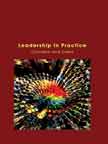Lok Satta - A Movement for Democratic Reforms in India
|
|
ICMR HOME | Case Studies Collection
Case Details:
Case Code : LDEN031
Case Length : 14 Pages
Period : 1977-2004
Pub Date : 2004
Teaching Note : Available
Organization : Lok Satta
Industry : -
Countries : India
To download Lok Satta - A Movement for Democratic Reforms in India case study
(Case Code: LDEN031) click on the button below, and select the case from the list of available cases:

Price:
For delivery in electronic format: Rs. 300;
For delivery through courier (within India): Rs. 300 + Shipping & Handling Charges extra
»
Leadership and Entrepreneurship Case Studies
» Case Studies Collection
» ICMR HOME
» Short Case Studies
» View Detailed Pricing Info
» How To Order This Case
» Business Case Studies
» Area Specific Case Studies
» Industry Wise Case Studies
» Company Wise Case Studies

Please note:
This case study was compiled from published sources, and is intended to be used as a basis for class discussion. It is not intended to illustrate either effective or ineffective handling of a management situation. Nor is it a primary information source.
Chat with us

Please leave your feedback

|
|




<< Previous
Background Note Contd...
|
The Human Development Index (HDI)9 2004 has given
India a "lowly" rank of 127 out of 177 countries covered. As per World Health
Organization (WHO) statistics, of every 100 children born in India, 63 are not
registered, 25 are not immunized against any disease, 16 are denied access to
clean drinking water, 47 suffer from malnutrition and 15 do not go to primary
school.
As per Indian Ministry of Human Resources Development data, 67.7 percent
of boys and 72.7 percent of girls who enrol in primary school drop out before
completing their 10th class. In India, delivery of governance services has been
very poor.
|

|
The former Chief Vigilance Commissioner, N. Vittal, quoted former
Prime Minister, Rajiv Gandhi, when he said, "in anti-poverty programmes, for
every rupee the Government invests, only 15 paise goes to the beneficiary.
Forty paise is the administrative overhead and the remaining 45 paise just
vanishes. It is corruption that distorts the proper implementation of
policy." Criminalization of politics adds to the inefficiency in service
delivery. The Election Commission estimated that 1,500 candidates of the
total 13952 candidates in the 1996 parliamentary election had criminal
records and 40 of them were elected to the 11th Lok Sabha. One out of every
seven legislators in India has a criminal record.
|
|
JP, who shares his name with another noted social reformer of India, the
late Jayaprakash Narayan, says that his experience in government service led
him to the conclusion that what India needed for improving service delivery
in governance was not change of players through elections or other means but
change in the rules of the game. In 1996, JP resigned from the civil service
to form the Foundation for Democratic Reforms (FDR), the think tank and
resource centre behind Lok Satta. Said JP, "It was a deep concern for
democracy that made me join the civil services after getting a formal
qualification in medicine and the same reason was responsible for my
embracing the new role too... |
Excerpts>>
|
|










